Photographs: Eric Feferberg/Pool/Reuters
The recent summit of the Association of Southeast Asian Nations, or Asean, in Phnom Penh was noteworthy for two reasons. First, because it became clear that a powerful bloc within Asean is not willing to allow Beijing to bully its way through maritime territorial disputes, even though the host nation, Cambodia, lobbied hard for China.
And second, the strong commitments from all participating nations to move forward on what is being called the Regional Comprehensive Economic Partnership, or RCEP.
The RCEP is, basically, an arrangement for a putative free-trade area that will cover Asean and six major trading partners - India, China, Japan, South Korea, Australia and New Zealand.
...
More Free Trade Agreements, less red tape
Image: A view of Beijing's Central Business District.Photographs: Jason Lee/Reuters
The reason this should be viewed as more than the usual freer-trade-is-good communique that emerges from regional talk shops is that, in this case, Asean already has free-trade agreements with all six of these nations. Enveloping them into one large agreement or partnership, therefore, is a step forward.
The big exception is, as usual, India. While the FTA in goods was signed in late 2009, no FTA in investment or in services has been worked out yet.
And even the goods FTA, as is India's wont, was hedged about with more exceptions than Asean's other such agreements. Even the truncated version, with only about 80 per cent of tariff lines freed up, reportedly faced objections in the Union Cabinet from Congress ministers from Kerala, who were concerned about its impact on employment.
...
More Free Trade Agreements, less red tape
Image: A cluster of high-rise buildings in the Ikebukuro district in Tokyo.Photographs: Stringer/Reuters
Prime Minister Manmohan Singh has said, however, that an FTA on investment and in services is close; some indications are that it could be signed as early as December.
If so, that is welcome, as the welfare gains are substantial from such an agreement, especially if it leads to a general RCEP-type trading zone in a world where multilateral trade talks have made little progress.
However, the great increase in goods trade with Asean countries in recent years has led some to worry about de-industrialisation of India. Competing with more efficient manufacturing units in East and Southeast Asia, it is argued, will further kill Indian manufacturing.
...
More Free Trade Agreements, less red tape
Image: Part of Gangnam area down the Han River in Seoul.Photographs: Lee Jae Won/Reuters
This is a valid worry, as vibrant manufacturing is necessary to grow employment sufficiently. However, trade cannot and should not be held responsible for disasters and uncompetitiveness that are born of home-grown policy.
Indian consumers cannot be expected to pay forever for Indian manufacturing's inability to modernise, or for the government's unwillingness to get out of industry's way. It isn't just about the vast disadvantages of inadequate infrastructure and restrictive labour laws. The operative problems are faulty administration and subsequent risk for producers.
Consider this newspaper's report on Wednesday that several major Indian steel producers are facing production bottlenecks due to problems with the availability of iron ore.
...
More Free Trade Agreements, less red tape
Image: Rowers train at dawn on the Yarra River in Melbourne.Photographs: Toby Melville/Reuters
Recent Supreme Court actions have cut the amount of iron ore mined in Karnataka to only one million tonne a month, which is less than half of what steel producers in the state require.
Meanwhile, the National Mineral Development Corporation, or NMDC, isn't even mining that much - and it is, according to steel producers, altering price determination from auction-based to spot-based methods.
This is far from the only place where government action is hurting producers. Attempts to introduce "pooling" of coal, for example, effectively penalise those producers who were expecting coal at a particular long-term price from Coal India to help those who were dependent on coal from overseas.
It is the government's short-sightedness and capriciousness, not international trade, that continue to stifle manufacturing.

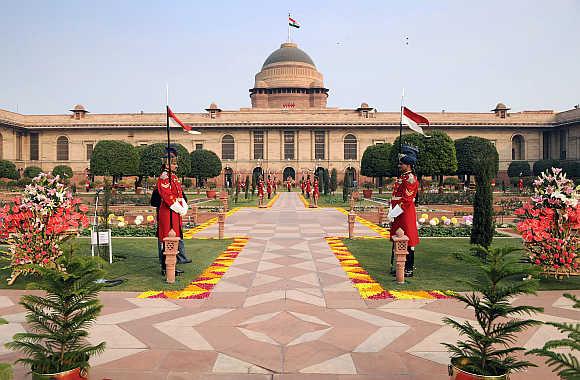
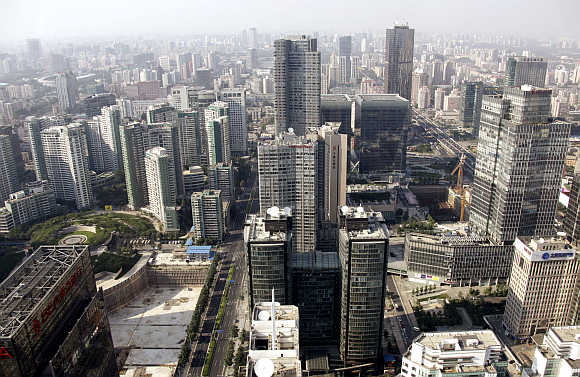
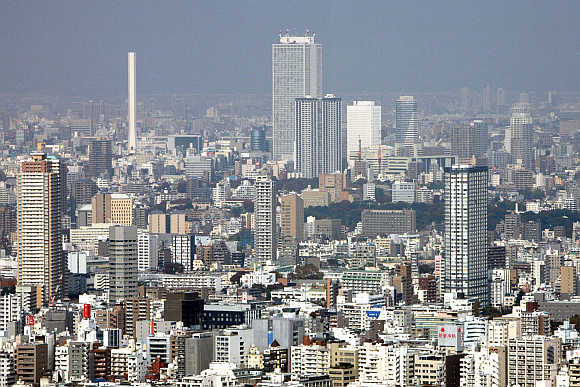
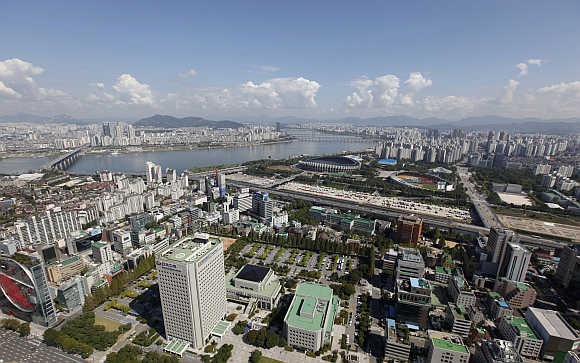
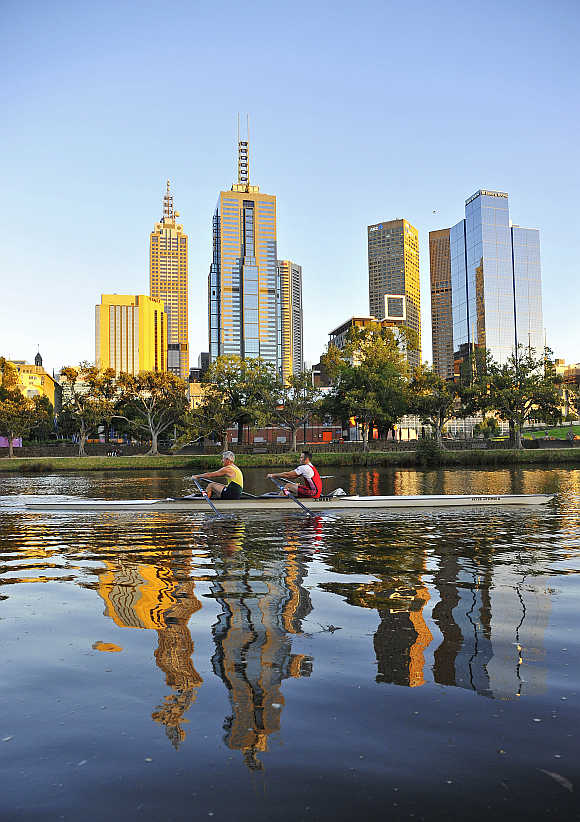

article